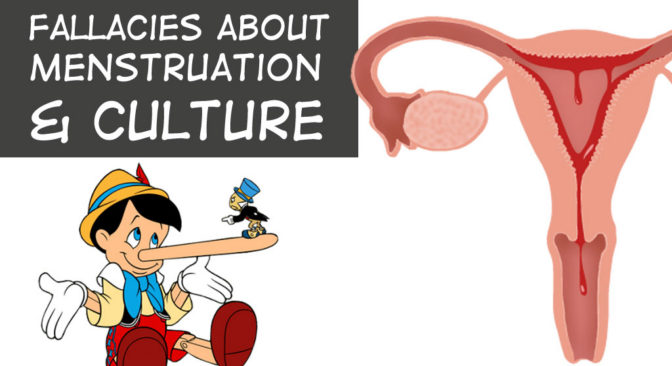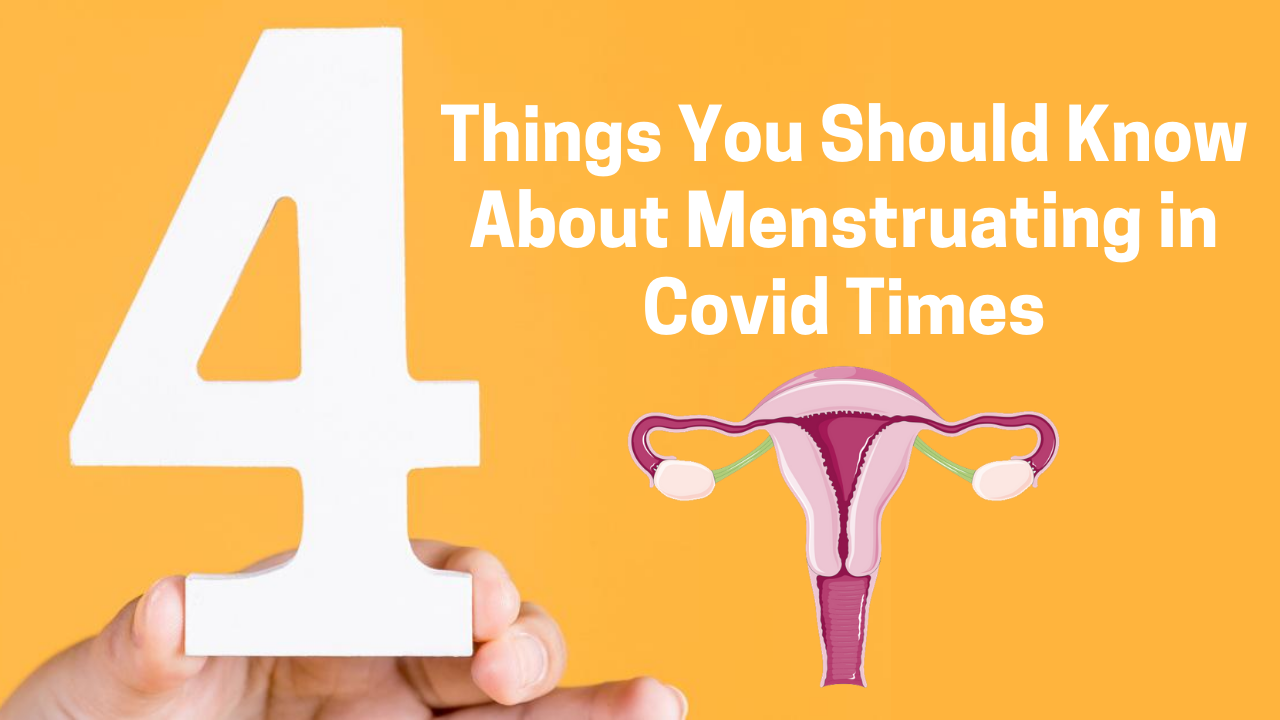Never have I so acutely felt the weight of Jonathan Swift’s remark, “Falsehood flies, and the truth comes limping after it,” as now.
Several people have forwarded to me an article (Menstrual taboos and ancient wisdom by Sinu Joseph), written by an educator, connecting “ancient wisdom” to the practice of menstrual taboo, and pitying the misguided women who expect modern ideas of gender and feminism to empower them. After cataloguing popular justifications for menstrual untouchability and suggesting that they come from a time when women enjoyed respect, indeed worship, in contrast to the present context of crimes against women, the author concludes that menstrual taboo is a matter of “personal choice.”
The author is a woman who works with government schools and health departments to teach girls and women about menstruation. Girls certainly do need spaces where they can speak freely and ask questions about menstruation, to know it is not shameful and that their bodies are just fine. How awesome would it be if after a presentation on the subject they could go home and declare, “I am not polluting, I don’t have to sit in the corner or in the shed. I can go where I want, when I want. I am free!”
Instead, we hear that when girls ask questions about why they are not allowed to touch people, pickers, temples, etc., this particular teacher tells them that untouchability is “a personal choice”, and that the myths and rituals reinforcing it are rooted in “ancient wisdom” when women were “worshipped”.
How many adolescent girls, hearing a teacher in school offer you on the one hand patriarchy masked as “ancient wisdom” and on the other “personal choice” will choose the latter? To top it off, the article suggests, in conclusion, that reviving traditional customs may effect social change and greater respect for women.
To emphasize the integrity of a woman’s body, the dignity of menstruation and for a world where girls and women are free and confident in our bodies, here are seven fallacies about menstruation and culture.
1.Menstrual untouchability allows women to rest
The idea of monthly “rest” has gained much currency in the defense of menstrual untouchability. To defend this practice on the grounds that it gives a woman rest presumes that women’s labour is available by default and that she cannot decide on her own when to rest. Must a woman accept that her body is polluting in order to take rest? Women deserve rest and dignity.
2. Menstrual taboo connects us to wisdom from ancient times when women were worshiped
If, indeed, women were worshipped then why should they not worship while menstruating? The argument that women’s chanting must be suppressed lest its energy overpower the mens’ holds water only if you believe that the right of the men to chant must not be infringed, while the women’s right is subordinate. To suggest that a return to traditional customs such as menstrual taboo will help us create a society that sees fewer crimes against women overlooks the fact that menstrual untouchability is itself a crime against women, just as untouchability itself is a crime against humanity.
3. Menstrual taboo was necessary in Hunter-Gatherer Societies
We don’t know how prevalent menstrual taboo was/is in hunter-gatherer societies, but not all hunter-gatherer societies practice it. Neither in primitive nor in modern societies is menstrual segregation necessary for our species.
4. Science will eradicate superstition and empower women
Yes, science will help us reject false claims, particularly oppressive ones. But science needs women as much as women need science. We need to uncover prejudices and challenge stereotypes in the way science is researched and presented and in the way women, men and our bodies are depicted, literally and metaphorically. For example, reading medical textbooks, Emily Martin shows that descriptions of women’s bodies reflect the values of industrial capitalism as well as gender bias and stereotype. Take away these values and women’s bodies aren’t treated as factories, nor menstruation as failed production. Assume women’s autonomy, and the body is described quite differently, as Martin explains. Medical texts that reinforce stereotypes about men, women and society impact the way doctors and health officials work.
5. Menstruation is painful
For some women, menstruation is painful. Unless you have accepted that you are impure or that this is the only way you can get some rest, menstrual untouchability is also painful. Even if you have accepted it, living with shame about one’s body is painful. Having your period in a world whose time and space is organized as if menstruation doesn’t exist can also be painful. For many women, improved nutrition and hygiene, access to rest when they wish, and general freedom and confidence in their own body help to alleviate or eliminate the pain. So do acupressure, massage and for some, keeping active – difficult to do while segregated. Often women who are segregated during menses have limited access to the water, cannot bathe or even change their clothes and menstrual pads as often as they would like, or get a place in the sun to dry cloth pads. Even women who are not segregated may lack resources required for good menstrual hygiene. Frequent changing of pads goes a long way in alleviating discomfort, as does the menstrual cup.

Fun fact: Uta Pippig finished first in the 1996 Boston Marathon, running 26.2 miles in under 2½ hours, during her period!
6. The touch of a menstruation women is so “hot” or “energetic” that it will spoil pickle
Obviously this is not true. Food spoils due to growth of bacterial, mold, etc. Anyone who has ever charted her temperature knows that our body temperature rises at the time of ovulation and falls just before menstruation. In any case this temperature change is less than 1 degree centigrade so it doesn’t significantly alter the growth of bacteria.
If you adhere to the notion of ritual purity and pollution, and if you believe that menstruation renders a woman untouchable, then ANY food, not only pickle will be unfit for consumption by a non-untouchable, particularly a threaded Brahmin male, once it has been touched by an untouchable. It remains fit for consumption by other menstruating women. Another woman may also consume it, but it will render her untouchable. To regain entry into the house she will have to wash herself and clothes, just as a menstruating woman does at the end of the stipulated period of untouchability. If a Brahmin male were to touch this contaminated food, he would not only have to wash himself and his clothes but also change his caste-thread in a prescribed ceremony, as mere washing would not remove the ritual contamination.
Why pickle? The reason that pickle is particularly mentioned is that pickle is a food that is preserved such that it doesn’t normally spoil at room temperature. In some households, it is kept in ritually “pure” conditions at all times so that if a guest, such as a threaded Brahmin male, should arrive who is accustomed only to eat food that is ritually pure, then at least the pickle is available, until other food can be prepared according to specifications. Were an untouchable to touch this pickle, the guest would be left hungry (though the untouchable would be able to eat it). This is based on my experience living with my elder relations who practised untouchability, including menstrual untouchability.
7. Rejecting menstrual taboo hurts religious sentiments
Whose religious sentiments? Do the religious sentiments of the menstruating woman count? I cannot speak for other religions but as far as Hinduism goes, its sentiments are most hurt when you fail to question. Hinduism, if it is anything (which is arguable), is a complex set of often contradictory lines of thought and practice that have been fueled over the generations by relentless interrogation and engagement with ideas and their opposites. Hindu thought grows not through those who adhere to it dogmatically but through those who rigorously question and test it. Consider Chokha Mela, who questioned untouchability and the concepts of purity and pollution that underlie it, including menstrual untouchability. Once prohibited from the temple, he is now called Sant Chokha Mela.
And now if you’ll excuse me, I need to go and dance by moon light. My sisters are calling.
Further reading:
Rose George: The Taboo of Menstruation
Agnes A. Estioko-Griffin: The Compatibility of Hunting and Mothering among the Agta
R. L. Kelly: Hunting and Menstrual Taboo
Emily Martin: Medical Metaphors of Women’s Bodies: Menstruation and Menopause
Jug Suraiya: Hindutva is anti-Hinduism
Eleanor Zelliot: Chokhamela and Eknath: Two Bhakti Modes of Legitimacy for Modern Change
This article is republished from The Alternative
Image Source: http://bit.ly/2ensDbS
Author: Aravinda Pillalamarri
Aravinda Pillalamarri works with the Association for India’s Development and allied community organizations asserting people’s rights to natural, cultural, civic and intellectual resources, particularly in the areas of food, health, learning and livelihood.









